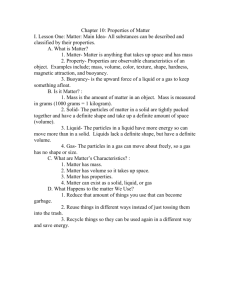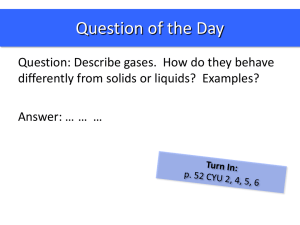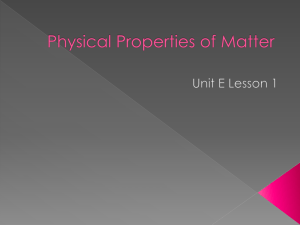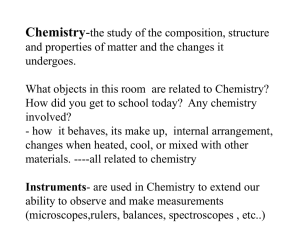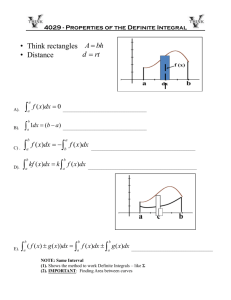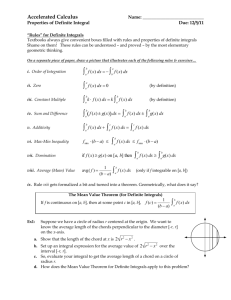Generalized Eigenvalue Problem 60 hours
advertisement
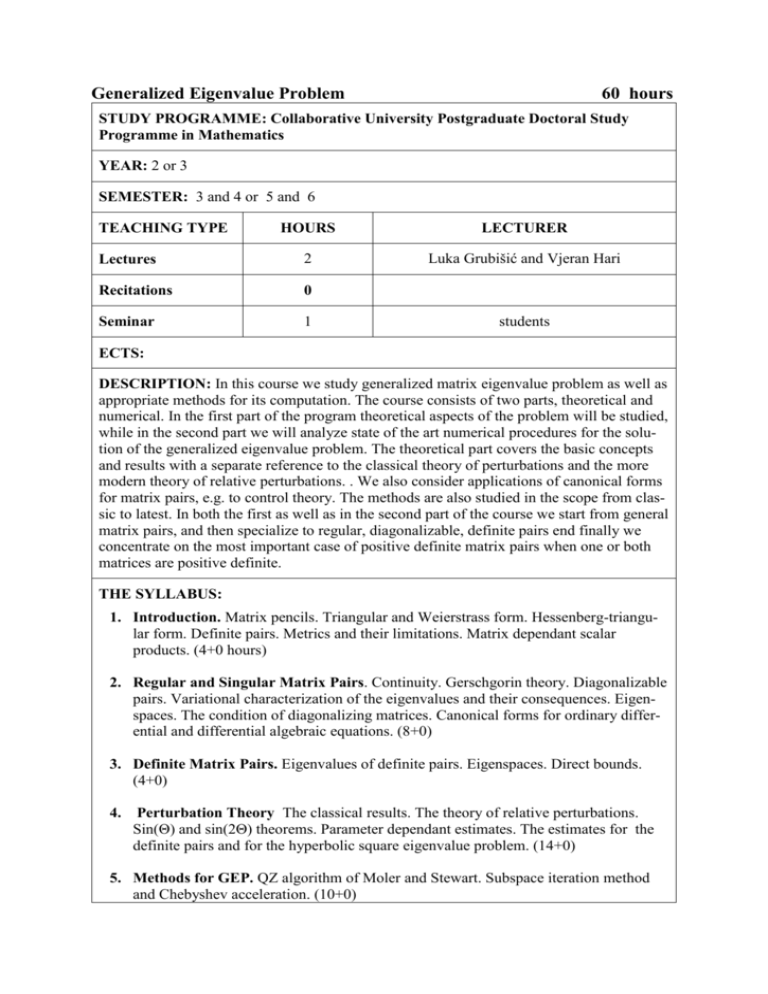
Generalized Eigenvalue Problem 60 hours STUDY PROGRAMME: Collaborative University Postgraduate Doctoral Study Programme in Mathematics YEAR: 2 or 3 SEMESTER: 3 and 4 or 5 and 6 TEACHING TYPE HOURS LECTURER Lectures 2 Luka Grubišić and Vjeran Hari Recitations 0 Seminar 1 students ECTS: DESCRIPTION: In this course we study generalized matrix eigenvalue problem as well as appropriate methods for its computation. The course consists of two parts, theoretical and numerical. In the first part of the program theoretical aspects of the problem will be studied, while in the second part we will analyze state of the art numerical procedures for the solution of the generalized eigenvalue problem. The theoretical part covers the basic concepts and results with a separate reference to the classical theory of perturbations and the more modern theory of relative perturbations. . We also consider applications of canonical forms for matrix pairs, e.g. to control theory. The methods are also studied in the scope from classic to latest. In both the first as well as in the second part of the course we start from general matrix pairs, and then specialize to regular, diagonalizable, definite pairs end finally we concentrate on the most important case of positive definite matrix pairs when one or both matrices are positive definite. THE SYLLABUS: 1. Introduction. Matrix pencils. Triangular and Weierstrass form. Hessenberg-triangular form. Definite pairs. Metrics and their limitations. Matrix dependant scalar products. (4+0 hours) 2. Regular and Singular Matrix Pairs. Continuity. Gerschgorin theory. Diagonalizable pairs. Variational characterization of the eigenvalues and their consequences. Eigenspaces. The condition of diagonalizing matrices. Canonical forms for ordinary differential and differential algebraic equations. (8+0) 3. Definite Matrix Pairs. Eigenvalues of definite pairs. Eigenspaces. Direct bounds. (4+0) 4. Perturbation Theory The classical results. The theory of relative perturbations. Sin(Θ) and sin(2Θ) theorems. Parameter dependant estimates. The estimates for the definite pairs and for the hyperbolic square eigenvalue problem. (14+0) 5. Methods for GEP. QZ algorithm of Moler and Stewart. Subspace iteration method and Chebyshev acceleration. (10+0) 6. Methods for Definite Eigenproblem. Falk-Langemeyer method. Veselić J-Jacobi method. (10+0) 7. Methods for Positive Definite Eigenproblem. Wilkinson method. HZ method. Nearly diagonal pairs. Subspace iteration method. Methods based on Krylov subspaces. (10+0) STUDENTS' OBLIGATIONS AND THEIR EVALUATION: class attendance, homework, taking the colloquium, presenting at least one seminar of 45 or more minutes. It will be one test in fall and one in summer semester. CONDITIONS FOR GRADUATION: Attendance at least 60% of lectures and positively reviewed colloquia and seminars. EXAMINATION: Students collect points through mandatory colloquia, seminar presenta- tions and homeworks. As an additional option to collect points, there are computer projects. The final grade is formed on the basis of accumulated points and of the success achieved. PRECURSOR COURSES: Vector spaces at undergraduate studies and Numerical Analysis at the doctoral study. REQUIRED READING: Certain parts of the following books 1. G. W Stewart, J.G. Sun, Matrix Perturbation Theory, Academic Press,Inc. 1990, 2nd edition, John Hopkins University Press, 1993. 2. D. S. Watkins: The matrix Eigenvalue Problem, GR and Krylov Subspace Methods, SIAM 2007 3. G. W Stewart, Matrix Algorithms. Volume II: Eigensystems. SIAM 2001. 4. B. N. Parlett: The Symmetric Eigenvalue Problem, SIAM 1998 5. K. Veselić: Damped oscillations of linear systems — a mathematical introduction, Springer Lecture Notes, 2011. SUPPLEMENTARY READING: 1. V. Hari: On Cyclic Jacobi Methods for the Positive Definite Generalized Eigenvalue Problem. Ph. D. Thesis, University of Hagen 1984. 2. S. Miodragović: Rotations of eigenspaces of perturbed matrix pairs with real spectrum. Ph. D. Thesis, University of Zagreb 2014. 3. A selection of scientific papers at the discretion of the lecturers.

